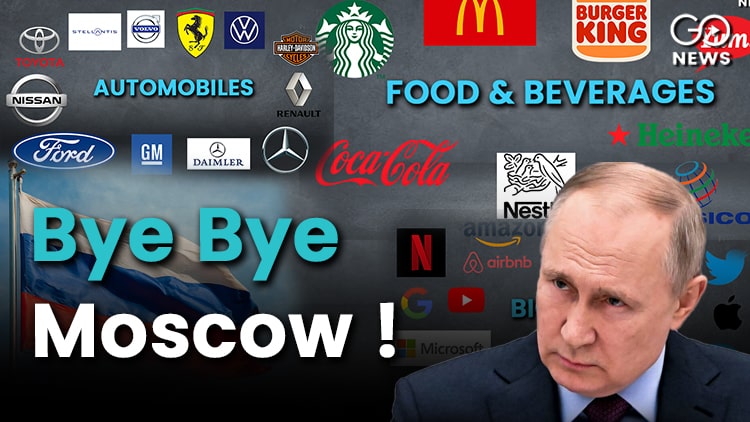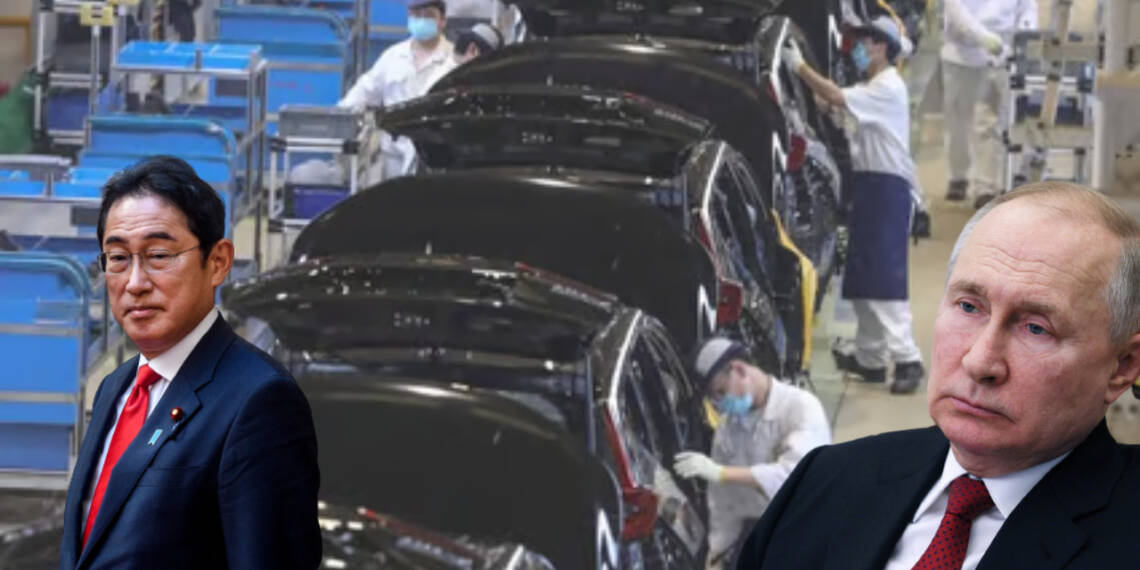In the aftermath of the Ukraine war, foreign brands, particularly Western, started deserting Russia. The haste suggested impending doom for the Russian economy. However, the tables have turned, and the once-abandoned market is now the subject of desire for these very brands, as their exodus resulted in staggering losses of billions of dollars.
The most intriguing twist in this tale, however, is the curious surge of Japanese cars in Russia, despite a recent ban on their import and export.
Western Brands’ Exodus from Russia
When the Ukraine war ignited, a wave of foreign brands bid a hasty farewell to the Russian market, leaving a void that many believed would cripple the Russian Ruble. The Western media painted a grim picture, prophesying doom for Russia. But did that happen? The results are before us. These brands, who once saw Russia as an expendable market, are now scrambling to regain their foothold.

The Japanese Car Conundrum
In the midst of sanctions and economic blows, Japan decided to play its hand by imposing a ban on the import and export of cars to and from Russia. Yet, a recent report by TASS has exposed a clandestine underbelly of dealings. The report reveals a staggering 53% surge in the export of cars from Japan to Russia in July, compared to the previous year’s average.
Read More: The report card of Western Sanctions on Russia is out. And it’s nothing you have imagined!
This surprising influx includes a whopping 84% increase in passenger cars alone, painting a vivid picture of Japanese automobiles dominating the Russian roads. That said, total deliveries of transport vehicles in July were almost 1.5 times higher than the past year’s average, which stands at around 21,600 units.
At the same time, supplies of spare parts and components from Japan decreased by 44.4% in July 2023.
In particular, 33,192 transport vehicles were supplied to Russia in July, with 32,116 of them being passenger cars.
Earlier, the government of Japan resolved to prohibit imports of cars with engine displacement exceeding 1.9 liters and hybrid electric vehicles starting August 9 as part of its anti-Russian sanctions.
Western Regret and Russian Resilience
The gambit of imposing harsh sanctions on Russia, aimed at turning ruble into rubble, seems to have backfired spectacularly. Western conglomerates, including household names like McDonald’s, Starbucks, Google, and Microsoft, hastily withdrew from the Russian market, expecting a domino effect on the economy. However, the touted catastrophe failed to materialise.

The financial burden of the West’s recession has caused Western companies to sing a different tune. A staggering collective loss of $300 billion has turned even the most indomitable billionaires teary-eyed. According to RBC Daily, foreign businesses have incurred losses between $200 and $240 billion since early 2022, with industries ranging from oil and gas to finance and automobiles feeling the sting. Despite this, a beacon of hope remains as a fraction of global corporations, about 47 out of the top 200, continue to engage with the Russian market.
Read More: EU forgets to sanction Russia
The Western Comeback
The curious gush of Japanese cars in Russia encapsulates a multifaceted narrative of global economics and market dynamics. What was initially deemed a crippling blow to the Russian economy has transformed into an unexpected resurgence. The brands that once hastily retreated from Russia are now gingerly knocking on its doors once more.
Watch More:








